What to Know
- Yvonne Anderson is one of many women basketball players that decided to obtain dual citizenship to play at the Olympics.
- The International Basketball Federation (FIBA) has a rule that permits athletes to play for other countries if they become hold dual citizenship or become a naturalized citizen.
- Any athletes older than 17 that are hoping to play for a national team must have permission from the FIBA's secretary general.
Yvonne Anderson knew playing in the Olympics for the U.S. was a longshot at best. Realistically, it was likely never going to happen.
Yet, the Arkansas native is here is at the Tokyo Games living her Olympic dream — with Serbia.
“As an American, you really can’t consider it if you’re not WNBA, if you’re not top 12 in the USA,” Anderson said. “That’s a long list of players right there.”
Get Tri-state area news and weather forecasts to your inbox. Sign up for NBC New York newsletters.
Anderson isn’t the only women’s basketball player to take this alternate route to the Olympics. Becky Hammon might be the most well-known player to realize her Olympic dreams somewhere other than the country they call home.
A FIBA rule allows countries to tap players with dual citizenships or a player who becomes a naturalized citizen. Several players at the Tokyo Games are taking advantage of the rule, including former UConn forward Gabby Williams, whose mother is French, is playing for France. Astou Ndour, born in Senegal, went to Spain to play basketball and became a Spanish citizen in 2011.
Nigeria’s roster is filled with players who honed their games at American colleges and now represent the country of their parents.
News
“My entire family’s Nigerian, I’m Nigerian,” said guard Adaora Elonu, who helped Texas A&M win a national championship in 2011.
It wasn’t so clear-cut for 2016 WNBA MVP Nneka Ogwumike and Elizabeth Williams of the Atlanta Dream. They have dual U.S.-Nigeria citizenship. FIBA rejected their request because both had logged too much time for the U.S. national program before applying to switch.
Nneka’s sister, Erica Ogwumike, is on the roster with the dual citizenship from parents Peter and Ify, whose four daughters were born after they immigrated to the U.S. Nigeria debuted with a 81-72 loss to the U.S., the closest anyone has come against the Americans since the semifinals of the 2004 Athens Games.
Anderson, 31, is at the Tokyo Games as Serbia’s one naturalized citizen — akin to being a free agent in many respects. Serbia’s Marina Maljkovic coached Anderson in a Turkish league, and the Serbia national team coach wanted to know if Anderson would play if the small country qualified for its second Olympics.
“It’s a team where you can come be a piece, and you’re going to help build something or continue a legacy,” said Anderson, daughter of St. John’s men’s coach Mike Anderson. “For me, it was an easy yes.”
That meant paperwork for the guard born in Springdale, Arkansas, adding Serbian citizenship to her American passport. The application started in January 2020 was delayed for a few months by the coronavirus pandemic.
The 5-foot-9 point guard who played at Texas has worked to learn the language of her new co-country; it’s still a work in progress.
“It’s a completely different sound, completely different accents,” Anderson said. “But if you’re going to be a part of the culture of the country, you have to show respect. You need to start learning some basics. I’m trying to grow, but it’s a challenge.”
Williams didn’t have any paperwork and language issues to get on France’s roster. The UConn star has been a French citizen since birth.
“This is a dream of mine to play for my team, the country of my mother and be an Olympian,” said Williams, who was traded by the WNBA’s Chicago Sky to the Los Angeles Sparks because she made playing in the Olympics a priority above playing in the league this year.
One key number for any player wanting to play on a national team is 17.
Before a player turns 17, anyone who has played for a national team needs permission from both national groups to switch. After 17, it’s only possible if FIBA’s secretary general signs off specifically to help grow basketball in the new country.
It’s not a new option but momentarily took center stage because of the Ogwumikes.
Diana Taurasi can see both sides of the argument.
Taurasi, whose parents moved to the U.S. from Argentina, is hoping to leave Japan with her fifth Olympic gold medal. When asked about Nneka Ogwumike, Taurasi said her fellow WNBA star has worn the U.S. jersey a lot in international competitions.
Then Taurasi added, “I guess if they’re from there, that’s cool.”
Most would agree, being an Olympian is cool.




